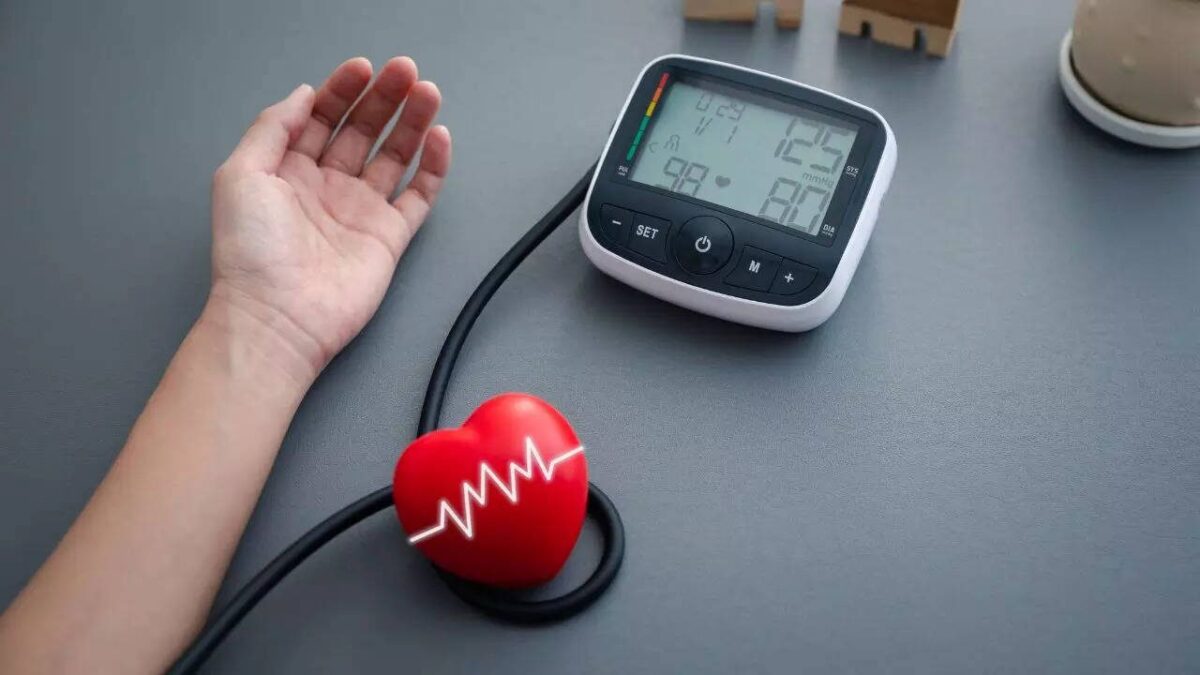High blood pressure, also known as hypertension, is one of the most common health conditions affecting millions of people worldwide. It occurs when the force of blood pushing against the artery walls is consistently too high, making the heart work harder to pump blood. Over time, this can lead to serious health problems such as heart disease, stroke, and kidney failure.
The good news? You can control high blood pressure naturally through simple lifestyle changes—without relying solely on medication. This article will walk you through practical, science-backed ways to lower your blood pressure and maintain a healthy heart.
Understanding High Blood Pressure
Before we jump into natural remedies, let’s understand what high blood pressure actually means.
Your blood pressure reading has two numbers:
- Systolic pressure (the top number): the pressure when your heart beats.
- Diastolic pressure (the bottom number): the pressure when your heart rests between beats.
A normal blood pressure reading is below 120/80 mmHg. If your numbers are consistently above 130/80 mmHg, you’re considered to have high blood pressure.
Common Causes of High Blood Pressure
- Unhealthy diet (too much salt or processed foods)
- Lack of physical activity
- Being overweight
- Stress and anxiety
- Smoking and alcohol consumption
- Genetics and family history
1. Eat a Heart-Healthy Diet
Your diet plays a major role in controlling blood pressure. A well-balanced, nutritious eating plan can help lower your numbers naturally.
The DASH Diet
The DASH (Dietary Approaches to Stop Hypertension) diet is one of the most effective eating plans for people with high blood pressure. It emphasizes:
- Fruits and vegetables
- Whole grains
- Lean proteins like chicken, fish, and beans
- Low-fat dairy products
- Minimal salt, sugar, and saturated fats
Reduce Sodium Intake
Excess salt causes your body to retain water, increasing blood pressure. Try to:
- Avoid processed foods and canned soups.
- Replace salt with herbs and spices for flavor.
- Aim for less than 2,300 mg of sodium per day (about 1 teaspoon of salt).
Add Potassium-Rich Foods
Potassium helps balance sodium levels in your body and relaxes blood vessels. Foods rich in potassium include:
- Bananas
- Avocados
- Sweet potatoes
- Spinach
- Beans
2. Maintain a Healthy Weight
Being overweight increases the strain on your heart and blood vessels. Even losing a few pounds can make a significant difference.
- Aim for a Body Mass Index (BMI) between 18.5 and 24.9.
- Focus on gradual, steady weight loss through a balanced diet and regular exercise.
- Avoid crash diets—they may do more harm than good.
Table: Weight and Blood Pressure Connection
| Weight Category | BMI Range | Risk Level for Hypertension |
|---|---|---|
| Normal Weight | 18.5–24.9 | Low |
| Overweight | 25–29.9 | Moderate |
| Obese | 30+ | High |
3. Exercise Regularly
Physical activity strengthens your heart, helps you maintain a healthy weight, and improves blood circulation—all of which help lower blood pressure.
Best Exercises for Lowering Blood Pressure
- Brisk Walking: 30 minutes daily can lower blood pressure significantly.
- Cycling or Swimming: Great for cardiovascular health.
- Yoga and Stretching: Reduces stress and improves flexibility.
- Strength Training: Builds muscle and helps burn fat.
Try to get at least 150 minutes of moderate-intensity exercise per week. Even short, consistent workouts make a big impact.
4. Manage Stress Naturally
Chronic stress is a silent contributor to high blood pressure. When stressed, your body releases hormones that temporarily increase blood pressure. Over time, this takes a toll on your heart and arteries.
Stress Management Techniques
- Practice deep breathing: Slow, mindful breathing can instantly reduce stress.
- Meditation or prayer: Promotes relaxation and mental clarity.
- Spend time in nature: Helps calm the mind and body.
- Listen to music: Calming tunes can reduce anxiety and lower heart rate.
5. Limit Alcohol and Quit Smoking
Both alcohol and tobacco can raise blood pressure and damage your heart.
- If you drink, do so in moderation—no more than one drink a day for women and two for men.
- Smoking narrows blood vessels and reduces oxygen in the blood, increasing the risk of hypertension and heart disease. Quitting smoking has immediate benefits for your blood pressure and overall health.
6. Get Quality Sleep
Poor sleep increases stress hormones and raises blood pressure. Adults should aim for 7–8 hours of restful sleep per night.
Tips for Better Sleep
- Keep a consistent bedtime routine.
- Avoid caffeine or heavy meals before bed.
- Turn off screens an hour before sleeping.
- Keep your bedroom cool and dark.
7. Stay Hydrated and Avoid Caffeine Overload
Dehydration can affect blood pressure regulation, so drink enough water throughout the day. On the other hand, too much caffeine can cause temporary spikes in blood pressure—so limit your coffee or energy drink intake.
8. Try Natural Remedies and Supplements
Some natural remedies can help lower blood pressure, but always consult your doctor before trying supplements.
Popular Options
- Garlic: Known for its heart-protective properties.
- Omega-3 fatty acids: Found in fish oil, they reduce inflammation and improve heart health.
- Hibiscus tea: Can have a mild blood-pressure-lowering effect.
- Magnesium and CoQ10: Support healthy blood vessel function.
9. Monitor Your Blood Pressure at Home
Keeping track of your readings helps you understand what works best for your body.
Use a reliable home blood pressure monitor and record your readings regularly.
Share this information with your healthcare provider to adjust your plan if necessary.
10. Be Consistent and Patient
Controlling high blood pressure naturally is not a one-day process. It requires dedication, consistency, and patience. Remember that small changes done regularly lead to big results over time.
Your goal should be to build a sustainable lifestyle that supports long-term heart health, not a temporary fix.
Conclusion
High blood pressure can seem like a serious challenge, but with the right natural strategies, you can take control of your health. Focus on eating nutritious foods, exercising regularly, managing stress, sleeping well, and avoiding harmful habits. Every positive step you take helps protect your heart and improve your overall well-being.
If your blood pressure remains high despite lifestyle changes, consult your doctor. A combination of natural methods and medical treatment may be necessary for optimal health.
FAQs About Controlling High Blood Pressure Naturally
1. Can I lower blood pressure without medication?
Yes, many people successfully manage high blood pressure naturally through lifestyle changes like diet, exercise, and stress reduction. However, some may still need medication under a doctor’s guidance.
2. What foods should I avoid with high blood pressure?
Avoid salty snacks, processed meats, canned soups, fried foods, and sugary beverages. These foods can raise sodium levels and increase blood pressure.
3. How fast can I lower my blood pressure naturally?
You may start noticing improvements within a few weeks of making healthy lifestyle changes, but consistent effort over months yields the best long-term results.
4. Is coffee bad for high blood pressure?
Caffeine can temporarily raise blood pressure, especially in people sensitive to it. Try to limit your intake and monitor how your body reacts.
5. Can drinking water lower blood pressure?
Yes, staying hydrated supports proper blood circulation and helps maintain healthy blood pressure levels. Aim for 6–8 glasses of water per day.


